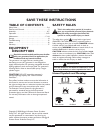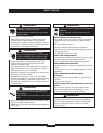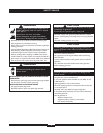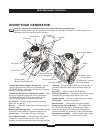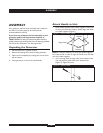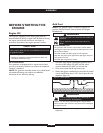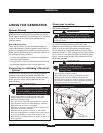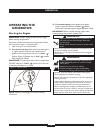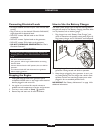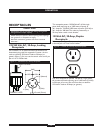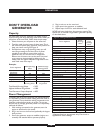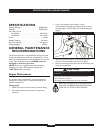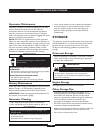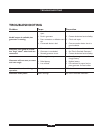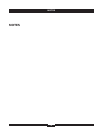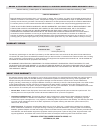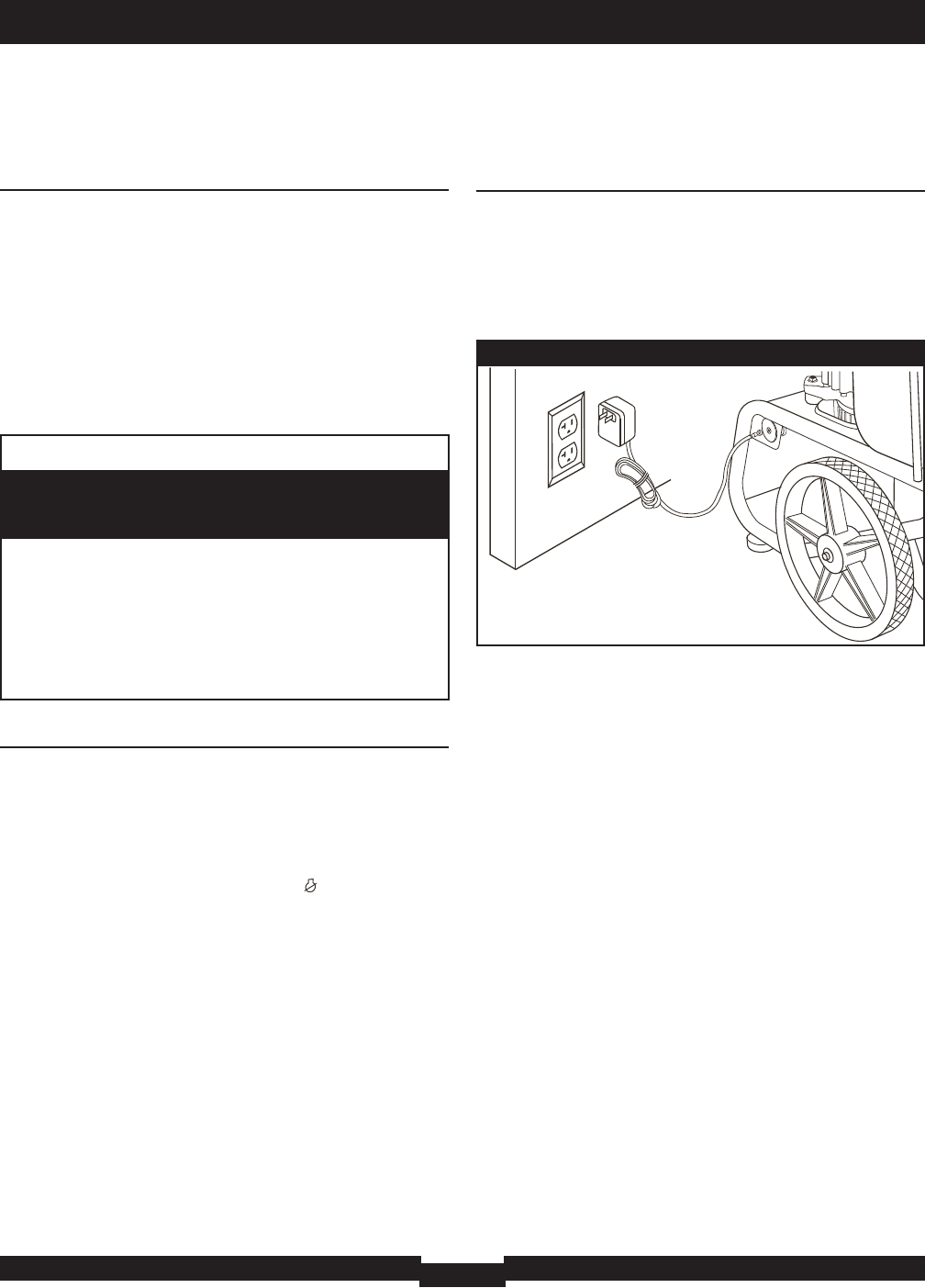
OPERATION
10
Connecting Electrical Loads
• Let engine stabilize and warm up for a few minutes after
starting.
• Plug in and turn on the desired 120 and/or 240 Volt AC,
single phase, 60 Hz electrical loads.
• DO NOT connect 240 Volt loads to the 120 Volt
receptacles.
• DO NOT connect 3–phase loads to the generator.
• DO NOT connect 50 Hz loads to the generator.
• DO NOT OVERLOAD GENERATOR. See “Don’t
Overload Generator”.
Stopping the Engine
1. Unplug all electrical loads from generator panel
receptacles. NEVER start or stop engine with electrical
devices plugged in and turned on.
2. Let engine run at no-load for several minutes to
stabilize internal temperatures of engine and generator.
3. Turn key in start switch to “Stop” ( ) position.
4. Remove key and store out of reach of children.
How to Use the Battery Charger
Use battery float charger jack to keep the starting battery
charged and ready for use. Battery charging should be done
in a dry location, such as inside a garage.
1. Plug charger into unit’s “Battery Float Charger” jack,
which is located on the ignition switch panel (Figure 6).
Plug battery charger into a 120 Volt AC wall receptacle.
2. Unplug charger from unit and wall outlet when
generator is being started and while in operation.
3. Keep charger plugged in when generator is not in use
to prolong battery life.The charger has a built in float
equalizer and will not overcharge battery, even when
plugged in for an extended period of time.
IMPORTANT: See “Battery Maintenance” on page 14 for
additional information.
Figure 6 — Battery Charger Jack
• See “Don’t Overload Generator”.
• Start generator and let engine stabilize before connecting
electrical loads.
• Connect electrical loads in OFF position, then turn ON for
operation.
• Turn electrical loads OFF and disconnect from generator
before stopping generator.
Exceeding generators wattage/amperage capacity can
damage generator and/or electrical devices connected
to it.
CAUTION



